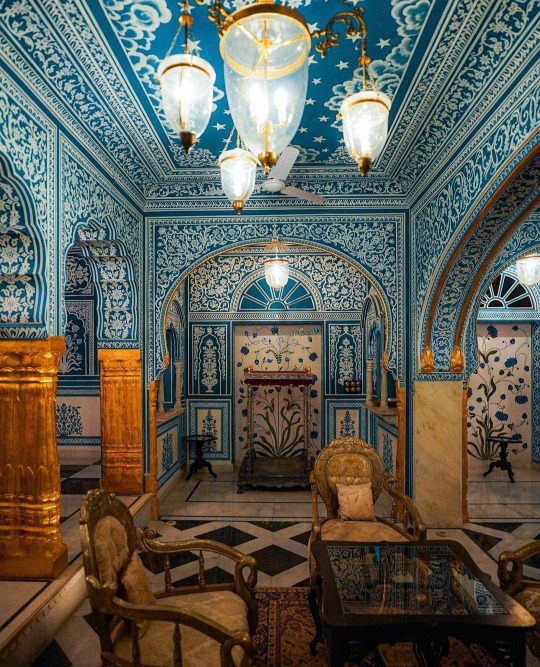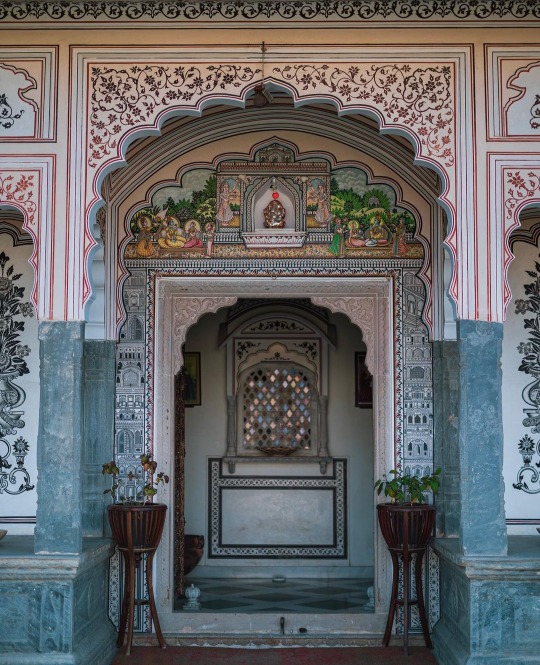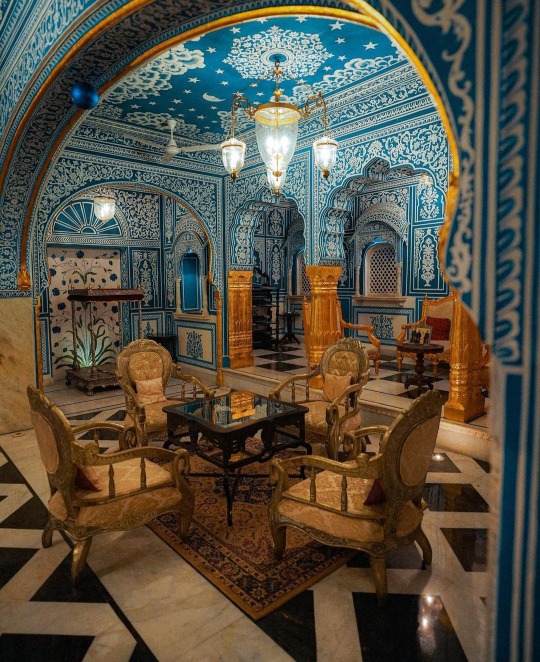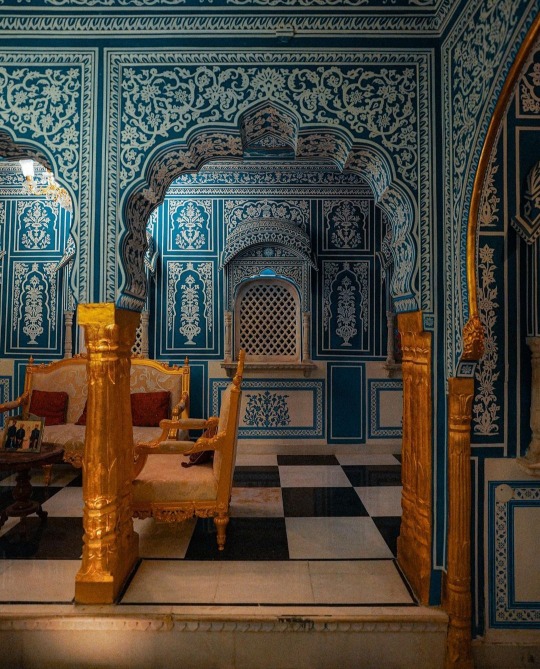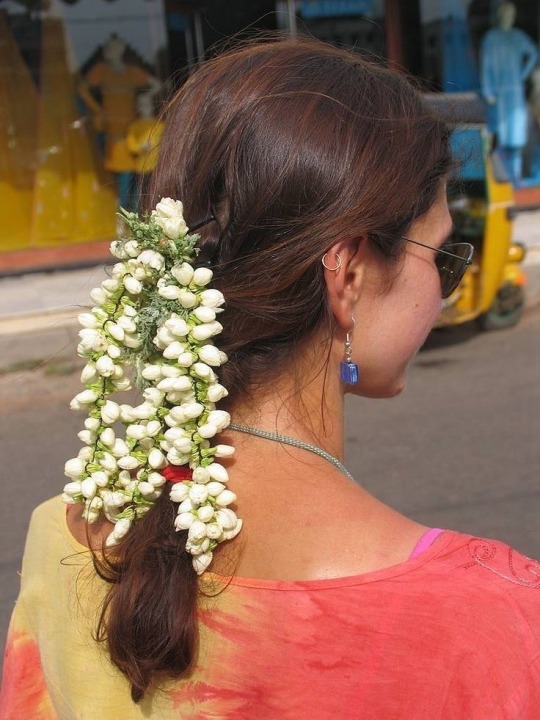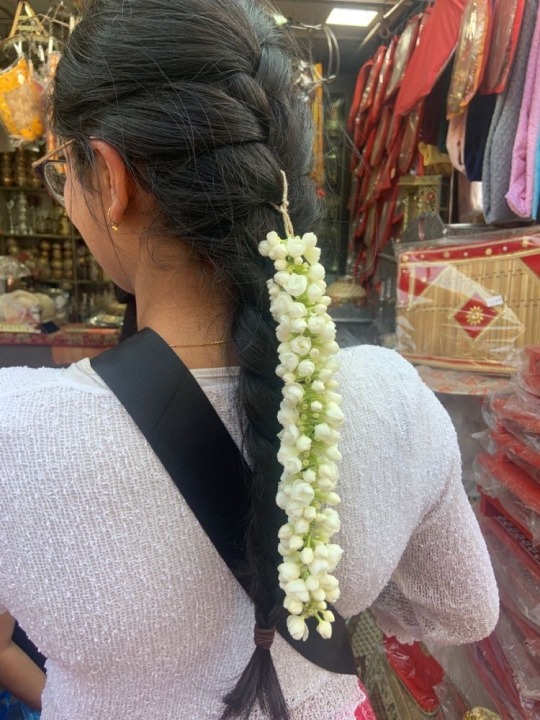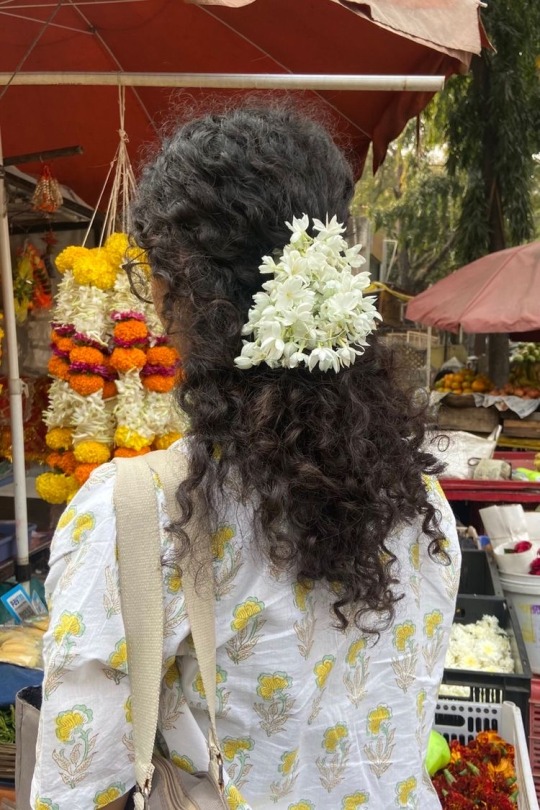Text

Weavers showcasing their intricately handwoven work, Kashmir, 1961 by Slim Aarons
3K notes
·
View notes
Photo
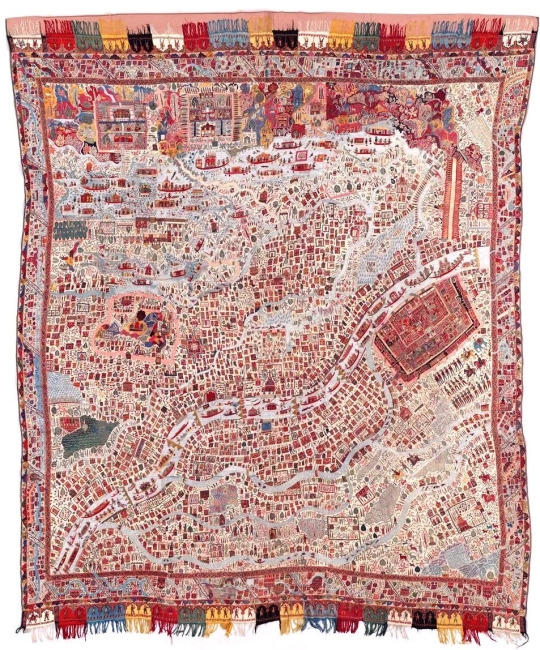
An antique 1870s Cashmere Shawl that’s also a map of Kashmir.
15K notes
·
View notes
Photo




Exploring Kashmir, India’s Most Misunderstood Region. Photography by Brian W. Ferry. Written by Hanya Yanagihara.
4K notes
·
View notes
Photo
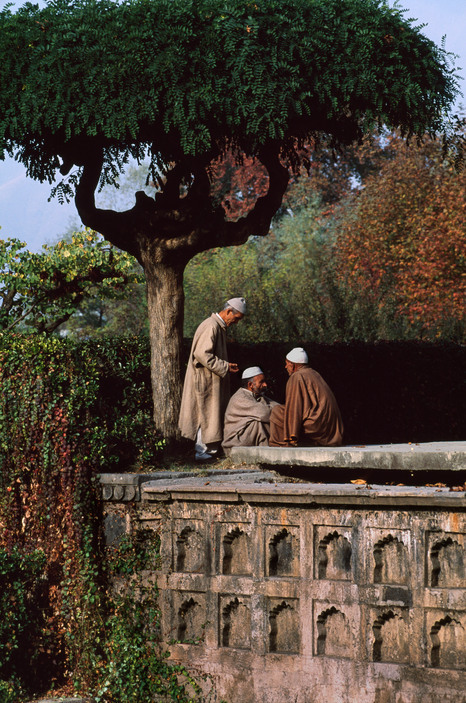
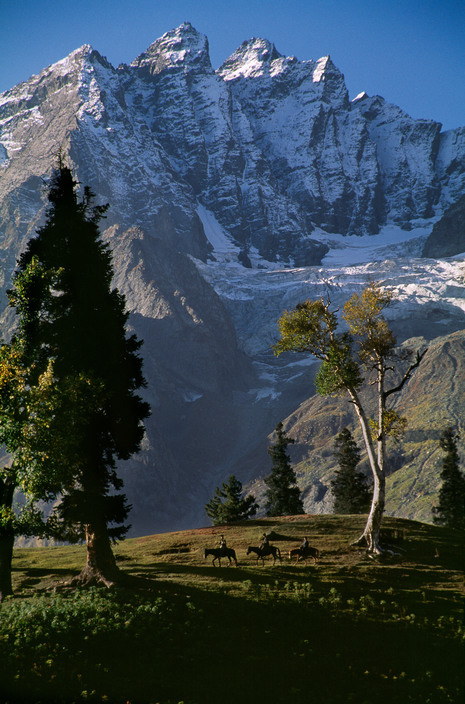
Kashmir, 1998
[Photo: Steve McCurry, Magnum Photos]
43K notes
·
View notes
Photo






SLEEPING BEAUTY: photography: Brian W. Ferry - text: Hanya Yanagihara - CNTraveler March 2015
“A master embroiderer at Beigh, in Srinagar. He’ll work on this one shawl for at least two years.”
“Shah Hamdan Mosque in Srinagar: the aesthetics influence of both Nepal and India is evident in Kashmir’s architecture and design.”
“One of Kashmir’s most famous artistic traditions is its painstakingly detailed papier-mâché work.”
“Srinagar’s beautiful Shalimar Bagh, a garden built by the Mogul emperor Jahangir for his wife in 1619.”
“A typical Kashmir welcome - cookies and saffron tea with crushed almonds.”
“Protected forestland of Overa-Aru National Park.”
1K notes
·
View notes
Text

My heart is bleeding since all of this bombarding started again. My heart is bleeding.
11 notes
·
View notes
Text

10 years tumblr, just realised that I’m still into the same aesthetics ✨
0 notes
Text
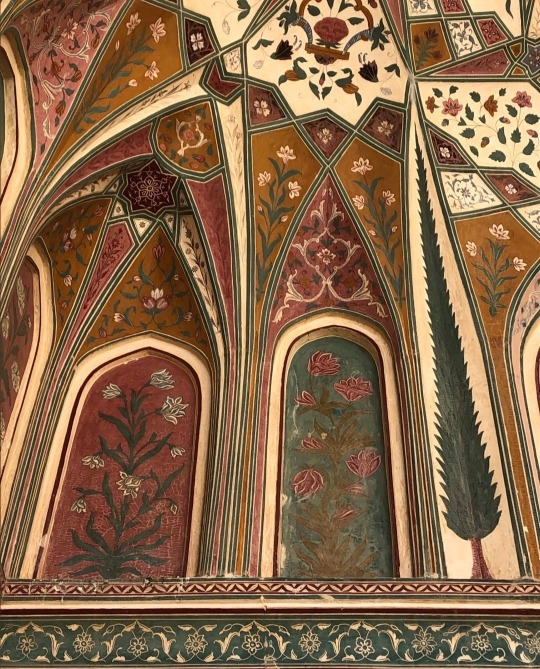
Interiors of Amer Fort in Jaipur, India depicting murals with a flowering plant motif.
11K notes
·
View notes
Text

Magnificently illuminated Qu'ran, North Africa, dated 727 AH (1327 AD)
from The Khalili Collections
237 notes
·
View notes
Text
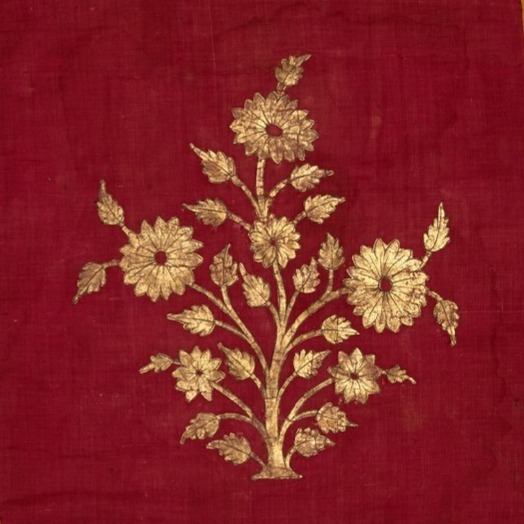
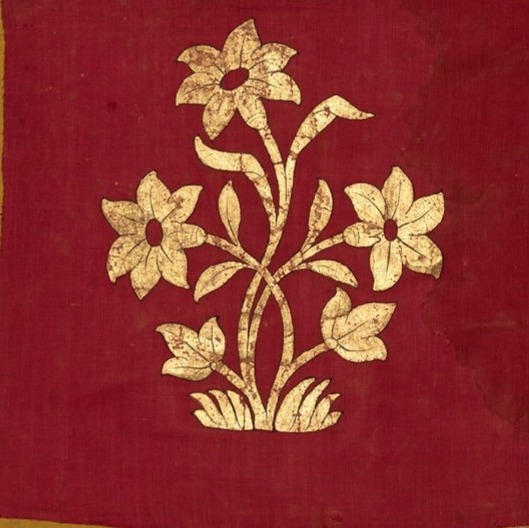

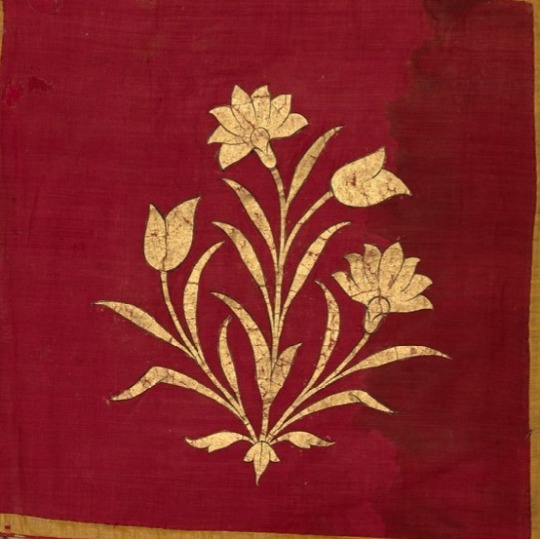

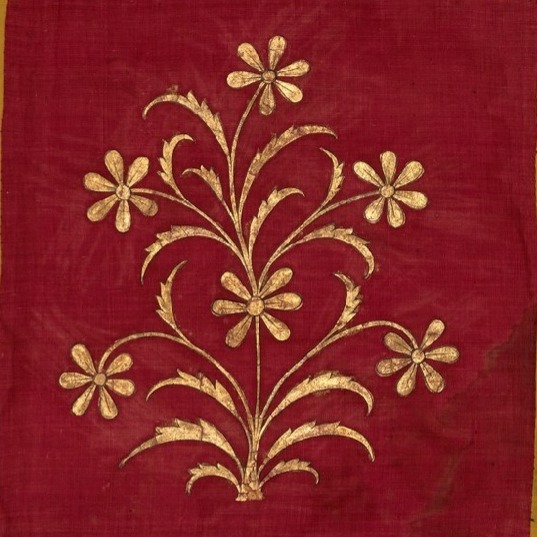
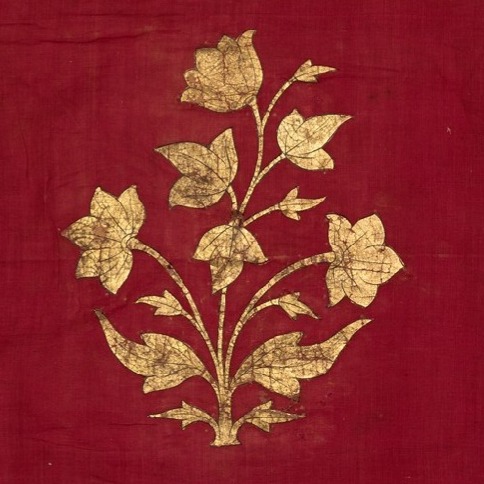
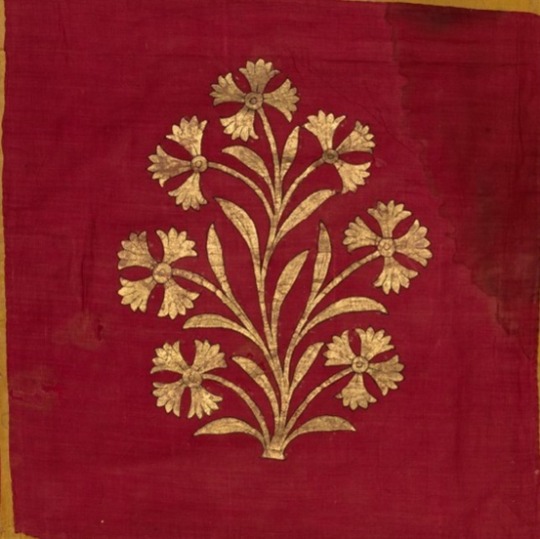

details from a mughal indian textile, 17th-18th century / metropolitan museum of art
710 notes
·
View notes
Text

Sistan & baluchestan/ Iran
Photography: Nima omrani
2K notes
·
View notes
Text








Tilla is a form of embroidery from Kashmir, distinguished by intricate needlework done with gold or silver threads on darker cloth. Traditionally, tilla work was only done on pherans, but in recent years it is also being applied on other garments like suits, shawls and sarees. Tilla designs are done on the lower neck, cuffs, and lower border of the garment. It takes almost a month to complete Tilla embroidery on one pheran. Machine-made tilla work fabrics are more readily available and cost less than the hand embroidered ones are becoming increasingly popular, although the hand-woven ones are still revered and preferred for special occasions.
1 / 2 / 3 / 4 / 5 / 6 / 7 / 8 | textile series
495 notes
·
View notes
Text
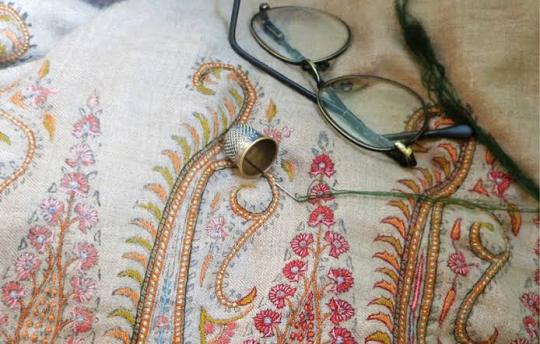
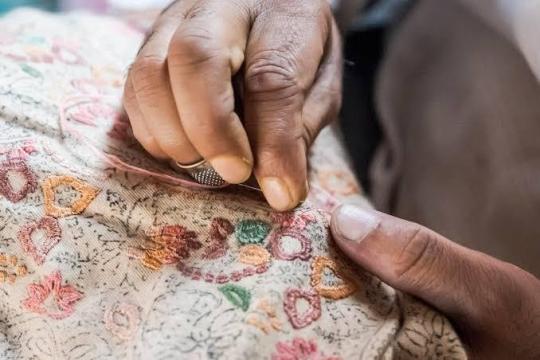
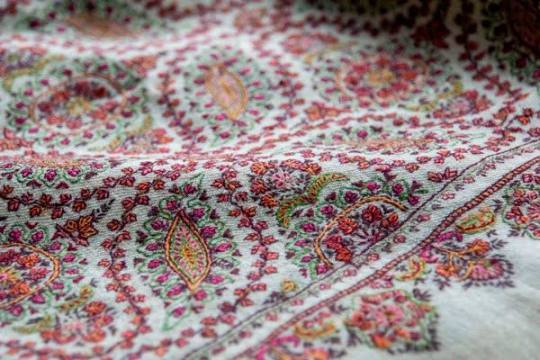
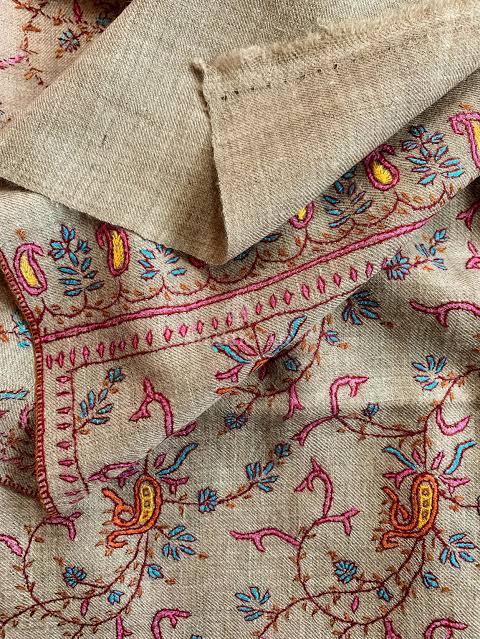
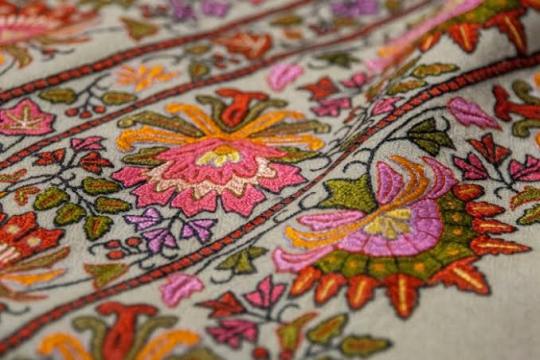

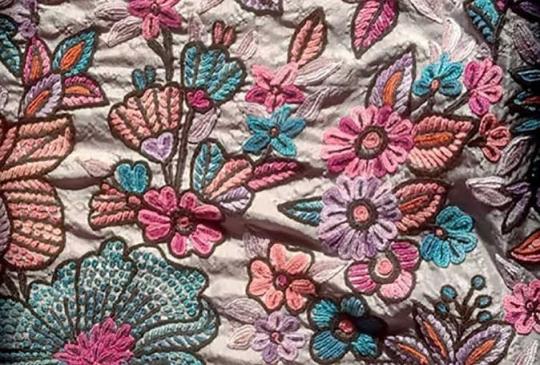
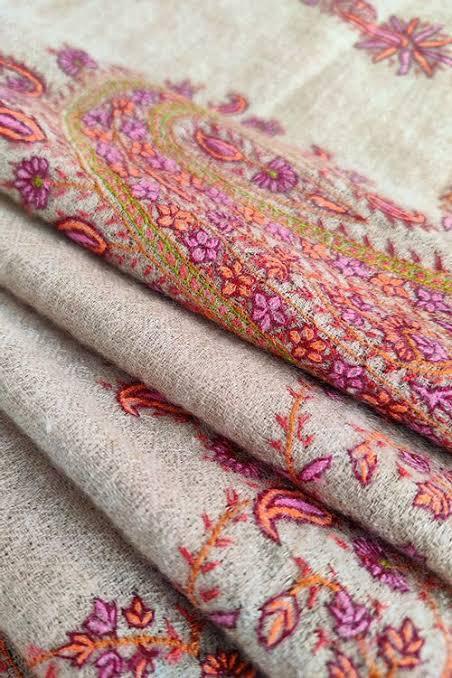
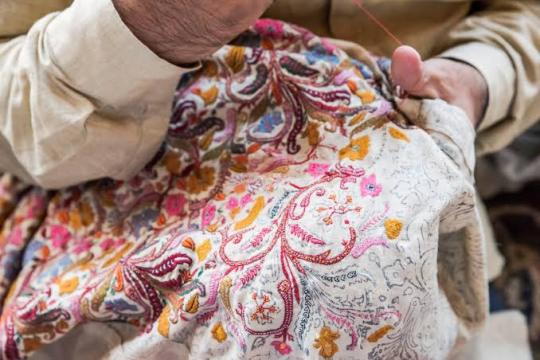
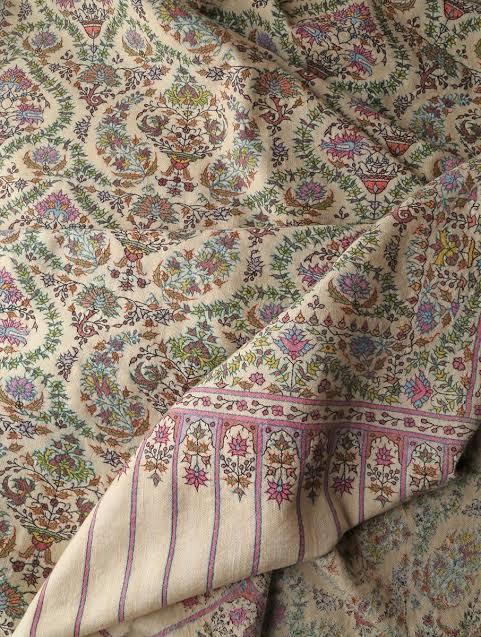
Aari, also known as Zalakdozi is a form of embroidery originating from Kashmir. The word zalokdozi means chain stitch. Aari embroidery involves only the chain stitch done in concentric rings to fill a pattern. Zalakdozi typically uses wool, cotton, or silk thread. It is done not using a needle, but a hook known as ‘ari’. Using a hook to do this embroidery saves on time and energy as the hook is used to pull a series of loops of the chain stitch, as against the single loops that have to be done using a needle.
1 / 2 / 3 / 4 / 5 / 6 / 7 / 8 / 9 / 10 / 11 | textile series
4K notes
·
View notes
Text
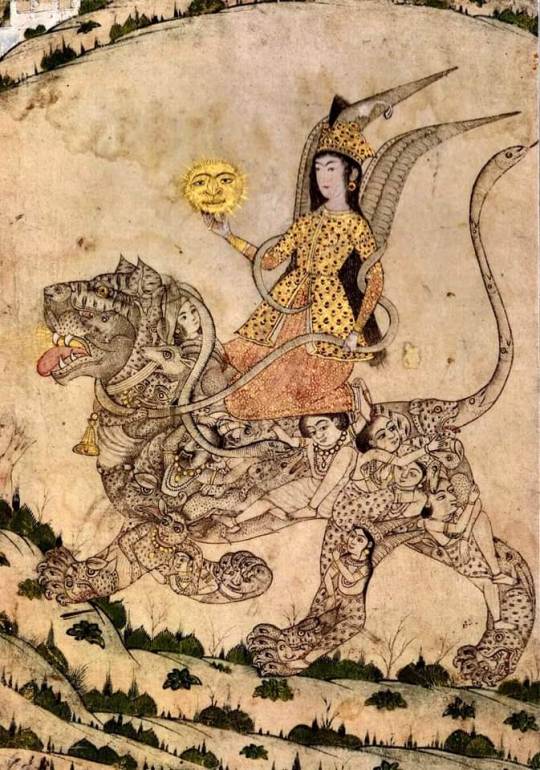
A Peri Holding the Sun Rides a Composite Lion, Kashmir, c1700.
634 notes
·
View notes
